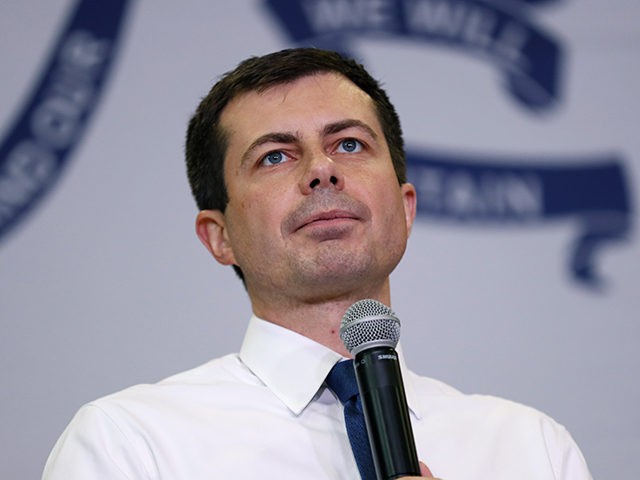Slate reported in December that the Wikipedia article for 2020 Presidential candidate Pete Buttigieg was created by Neehar Garg, a former volunteer for one of his state campaigns. While Garg admitted to Slate that he operated the accounts responsible for Buttigieg’s page, Wikipedia administrators used their advanced privileges to censor mentions of the report from both Buttigieg’s article and other parts of Wikipedia, claiming it was to protect Garg’s identity.
Garg’s creation of Buttigieg’s page raised questions about conflicts of interest, a common problem on Wikipedia. Initial versions of Buttigieg’s page also appear to be plagiarized from a bio of Buttigieg on another site.
In her piece for Slate, Ashley Feinberg identified “Streeling” and “Hanumang06” as two accounts belonging to Garg, who the Buttigieg campaign confirmed was a volunteer during Buttigieg’s failed 2010 run for Indiana State Treasurer. Buttigieg’s page was initially created by Garg using the Hanumang account during the Treasurer race. Following a discussion among other editors, the page was deleted on the grounds Buttigieg was not notable at the time. Garg subsequently began using his Streeling account and recreated the page after Buttigieg won the mayoral race in South Bend, Indiana.
Wikipedia editors quickly mentioned Slate’s report on Buttigieg’s article, but editor “MrX” removed it. Shortly after its removal, edits referencing the Slate piece were further deleted by an administrator using “oversight” privileges on the site. Oversighting, also called “suppression” on Wikipedia, removes content from the view of anyone lacking those privileges. Wikipedia’s hundreds of administrators can view most deleted material, but only a few dozen are able to view oversighted material. The oversight deletion tool was previously used to censor the name of the alleged “whistleblower” whose complaint about President Donald Trump’s call with Ukraine prompted his impeachment by the Democratic-led House.
Administrators defended using this more extreme censorship method in a subsequent discussion by citing Wikipedia’s rules against doxing, which only allow mentioning an editor’s identity when it is disclosed by the editor on Wikipedia itself. Other editors objected by noting Garg had admitted being behind both accounts in an interview with a site, which is considered “reliable” on Wikipedia and expressed concern the policy was suppressing reports of a Wikipedia editor aiding a political campaign. The Buttigieg campaign denied working with Garg on his Wikipedia editing, though Feinberg’s reporting suggests Buttigieg authorized Garg to use official photos of him on his Wikipedia page.
Deletions extended to an article in the main Wikipedia newsletter the Signpost, which discussed recent major media coverage of the online encyclopedia. When the newsletter’s editor “Smallbones” raised the deletions in a discussion about the doxing policy he noted a Washington Post article praising Feinberg’s work, which linked her piece on the editing of Buttigieg’s Wikipedia page without identifying Garg, and sought to use the article in the newsletter instead. Under pressure from administrators, he was compelled to remove even that material and pledged to take the issue to Wikipedia’s Arbitration Committee, likened to a Supreme Court. Several Wikipedia pages, including the discussion area for Buttigieg’s page, still link to the Slate piece despite this censorship.
Feinberg’s piece noted Garg’s intense interest in editing Wikipedia pages related to Buttigieg and raised questions over how much involvement Buttigieg had in the creation of his page on Wikipedia, involvement which would create potential issues under Wikipedia’s guidelines regarding conflicts of interest. Some actions, such as Garg uploading images obtained from Buttigieg and linking to the Buttigieg page on other articles, represent standard practice on the site with the latter generally expected when creating a new article.
One issue identified by Feinberg was that both versions of Buttigieg’s page created by Garg were nearly identical. This was not coincidental as both versions copy from a short bio about Buttigieg on the Truman National Security Project site. Each version links the Truman Project site, but does not clearly credit it as the main source of the material. Under Wikipedia’s policies on using copyrighted content, extensive use of text taken from another site is only allowed if the text is released on a free license. No such release is mentioned for Buttigieg’s page. Most copied material only remained a few years, though some remained for over five years.
Previous reporting by Feinberg has addressed other issues Wikipedia has with users who have conflicts of interest. In an article for The Huffington Post, Feinberg detailed the case of a paid editing firm run by Ed Sussman and work he did for major clients such as NBC News and Facebook. Breitbart News followed up by detailing more paid editing work by Sussman and noting the work of Beutler Ink, another paid editing firm, for clients at Reddit and CNN. Both disclosed and undisclosed editing by users with conflicts of interest represents another way bias infests the online encyclopedia aside from the site’s political bias.
(Disclosure: The author has been involved in disputes on Wikipedia with some parties referenced in this article)
T. D. Adler edited Wikipedia as The Devil’s Advocate. He was banned after privately reporting conflict of interest editing by one of the site’s administrators. Due to previous witch-hunts led by mainstream Wikipedians against their critics, Adler writes under an alias.



COMMENTS
Please let us know if you're having issues with commenting.